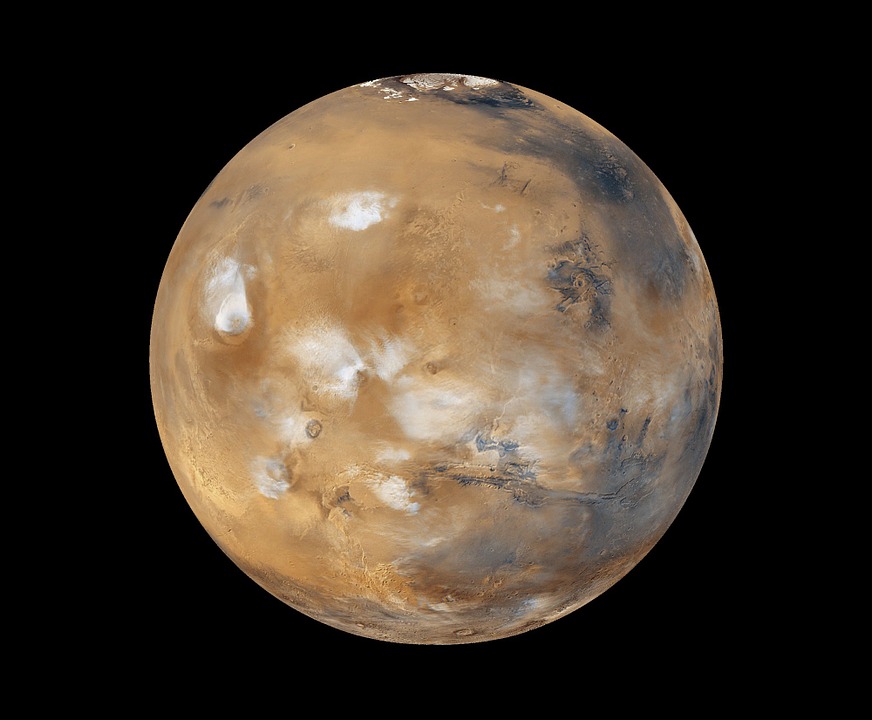Space agencies like NASA are currently in the process of preparing for the future Mars mission, which will see the first humans set foot on the Red Planet. However, SpaceX CEO Elon Musk has warned the astronauts who will be setting foot on Mars of the possibility of their mission becoming a fatal one.
SpaceX has assisted NASA this year in successful launches on American soil - the first in several years. However, as the agencies prepare for its upcoming Mars mission that will take place within the decade, Musk claims that the first humans that will set foot on Mars have a chance of dying when out on Martian soil.
The first humans that will reach Mars in the upcoming mission will be tasked to set up a base on Mars that will allow for future crewed missions to the Red Planet. Despite the grim warning to those who will become the astronauts that will travel to Mars, Musk noted that setting up a base on the Red Planet would be the ultimate goal.
“Getting to Mars, I think, is not the fundamental issue. The fundamental issue is building a base, building a city on Mars that is self-sustaining. We’re going to build a propellant plant, an initial Mars base -- Mars Base Alpha -- and then get it to the point where it’s self-sustaining,” said the SpaceX CEO. “I want to emphasize that this is a very hard and dangerous, difficult thing, not for the faint of heart. Good chance you’ll die, it’s going to be tough going, but it will be pretty glorious if it works out.”
However, the astronauts on the future Mars mission will also be faced with the challenge of traveling to Mars in itself. According to NASA, it will take around seven months to travel to Mars.
Over the weekend, the Moon flew by Mars in what is known as the lunar occultation of Mars. Mr. Patricio Leon from Santiago, Chile, was able to snap photos of Mars and the Moon in detail. Speaking to Space Weather, “I caught Mars emerging from behind the Moon’s southern hemisphere 25 minutes after being swallowed by the lunar disk.”



 NASA Resumes Cygnus XL Cargo Docking with Space Station After Software Fix
NASA Resumes Cygnus XL Cargo Docking with Space Station After Software Fix  SpaceX Starship Explodes in Texas During Test, Citing Nitrogen Tank Failure
SpaceX Starship Explodes in Texas During Test, Citing Nitrogen Tank Failure  Trump and Merck KGaA Partner to Slash IVF Drug Costs and Expand Fertility Coverage
Trump and Merck KGaA Partner to Slash IVF Drug Costs and Expand Fertility Coverage  FDA Adds Fatal Risk Warning to J&J and Legend Biotech’s Carvykti Cancer Therapy
FDA Adds Fatal Risk Warning to J&J and Legend Biotech’s Carvykti Cancer Therapy  Neuralink Plans High-Volume Brain Implant Production and Fully Automated Surgery by 2026
Neuralink Plans High-Volume Brain Implant Production and Fully Automated Surgery by 2026  Lost in space: MethaneSat failed just as NZ was to take over mission control – here’s what we need to know now
Lost in space: MethaneSat failed just as NZ was to take over mission control – here’s what we need to know now  Astronomers have discovered another puzzling interstellar object − this third one is big, bright and fast
Astronomers have discovered another puzzling interstellar object − this third one is big, bright and fast  Trump Signs Executive Order to Boost AI Research in Childhood Cancer
Trump Signs Executive Order to Boost AI Research in Childhood Cancer  Neuren Pharmaceuticals Surges on U.S. Patent Win for Rare Disorder Drug
Neuren Pharmaceuticals Surges on U.S. Patent Win for Rare Disorder Drug  SpaceX Prioritizes Moon Mission Before Mars as Starship Development Accelerates
SpaceX Prioritizes Moon Mission Before Mars as Starship Development Accelerates 































